Have you already picked out the tropical island you’re going to buy when your online business hits it big?
(Yeah, me too… Maybe there’s an extra Bahamas that nobody’s using?)

In the meantime, you have an important decision to make: which affiliate program will you choose to propel your affiliate marketing business to the height of success?
Comparing Two Affiliate Network Heavyweights
If you’ve spent any time at all learning about affiliate marketing programs or the world of online business, then you’re already familiar with both ClickBank and Amazon Associates.
But here’s the thing: for beginners and even intermediate affiliate marketers, how do you decide which affiliate program will help you achieve your goals?
In this deep dive comparison of ClickBank vs Amazon, we’ll cover the ins and outs of both marketplaces so you can make the best decision for your business.
(Side note: Yes, we know we ARE ClickBank – but we want you to find the best opportunity for your own success online!)
Product Selection
First of all, while Amazon is better known for physical products and ClickBank is better known for digital products, both marketplaces offer a huge mix of both.
So, which marketplace has more products overall for affiliates to promote to their sources of organic or paid traffic?
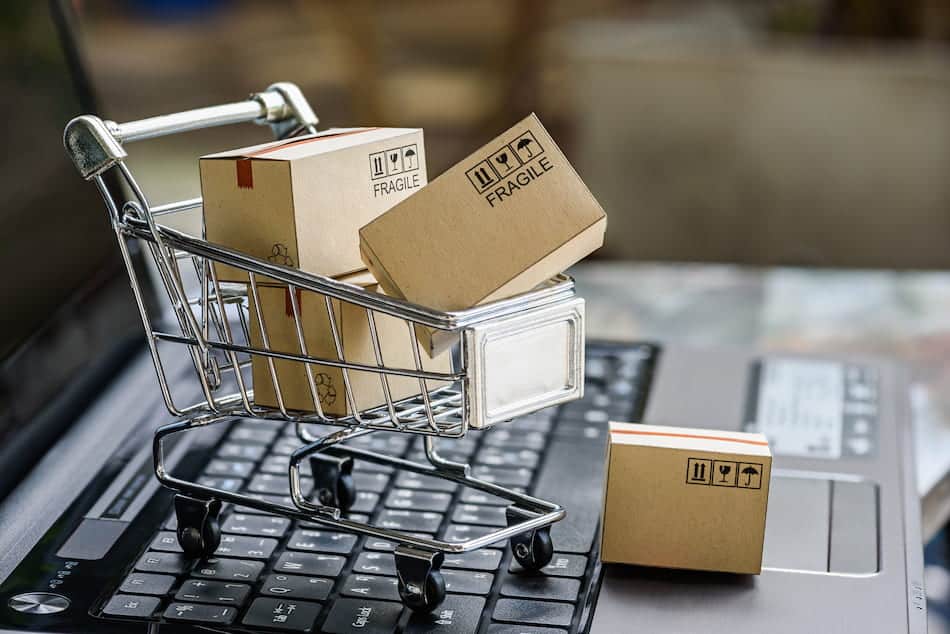
Well, considering Amazon sells 12 million products directly on its platform and has a marketplace of more than 353 million products, we’ll have to give the nod to Amazon on this one. The huge variety of products on Amazon is a BIG plus!
With that said, there’s an impressive selection of thousands of ClickBank products specifically listed for affiliates to promote – and you only need a few quality products to thrive as an affiliate.
The better marketplace for you may ultimately come down to your niche. In other words, this is a case where quality definitely trumps quantity, but in terms of sheer selection, Amazon wins.
WINNER: Amazon
Product Quality
Speaking of quality, how good are the products available on both marketplaces?
Well, because there are so many products listed on ClickBank and Amazon, it’s easy to find fantastic products on both sites. As for those pesky lesser quality products that can clog up a platform, customer feedback and overall sales performance will usually help the cream rise to the top!
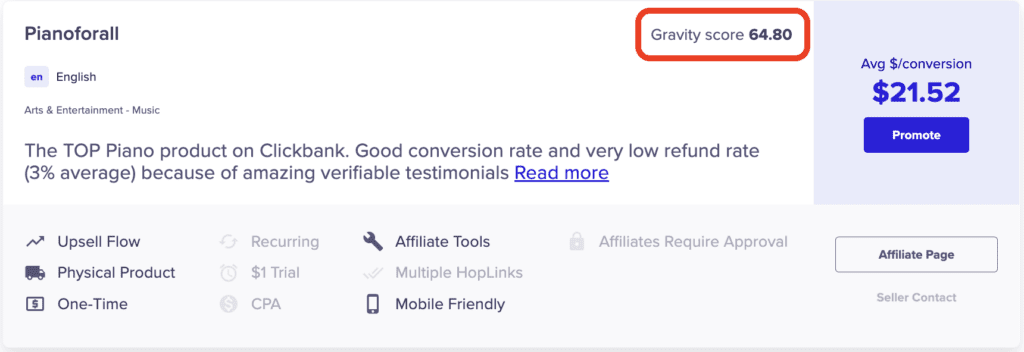
On ClickBank, the quality of an offer is represented by a Gravity score to help you find great physical and digital products with ease.
WINNER: Tie
Support for Affiliates
Affiliate marketing doesn’t often make the national news, but during the COVID pandemic, it did in a big way!
Back in April 2020, Amazon lowered affiliate commission rates on a number of popular product categories – such as grocery products from 5% to just 1%.
We understand that Amazon has to do what’s best for its business, but with Amazon’s primary business model as an e-commerce retailer, the company tends to treat affiliates as an expense – by contrast, ClickBank only succeeds when our affiliates do.
We’ve put a lot of protections in place to make our affiliates’ lives better, and we even provide dedicated affiliate account managers to work with our Platinum-level affiliates.
WINNER: ClickBank
Marketplace Cost and Fees
Another important factor to think about is the cost of doing business on either marketplace.
At ClickBank, we do charge a small commission to our vendors on product transactions, so as an affiliate, your commission is based on the remaining total. With that said, the overall order values and commissions tend to be quite high on ClickBank products – so you’ll be able to make up for the small cost in total sale value.
By comparison, an Amazon affiliate gets a specific commission rate on the total sale of a product, regardless of the seller. If you’re on the vendor side, keep in mind that in Amazon’s FBA program, your referral fees vary by product category, but typically range from 8 to 15% overall – and Amazon also takes a per-unit amount (currently $0.99) or a monthly fee for professional sellers (currently $39.99) to sell on Amazon.
Overall, the two fee structures are fairly similar when it comes to affiliates.
WINNER: Tie
Commission Structure
Commission rates are key for a successful affiliate business!
ClickBank provides a marketplace that supports anywhere from 1% to 75% in commission rates. I’ve personally seen many top products come in right at 70% or 75%, while other high quality offerings have a solid average order value with commissions in the 30-40% range.
Vendors also have a lot of leeway in what they set for commissions, even setting custom rates per affiliate.
As I mentioned earlier, Amazon has a sliding scale of 1 to 10% commission rates (plus some Amazon-specific offerings offering 0% in commissions).
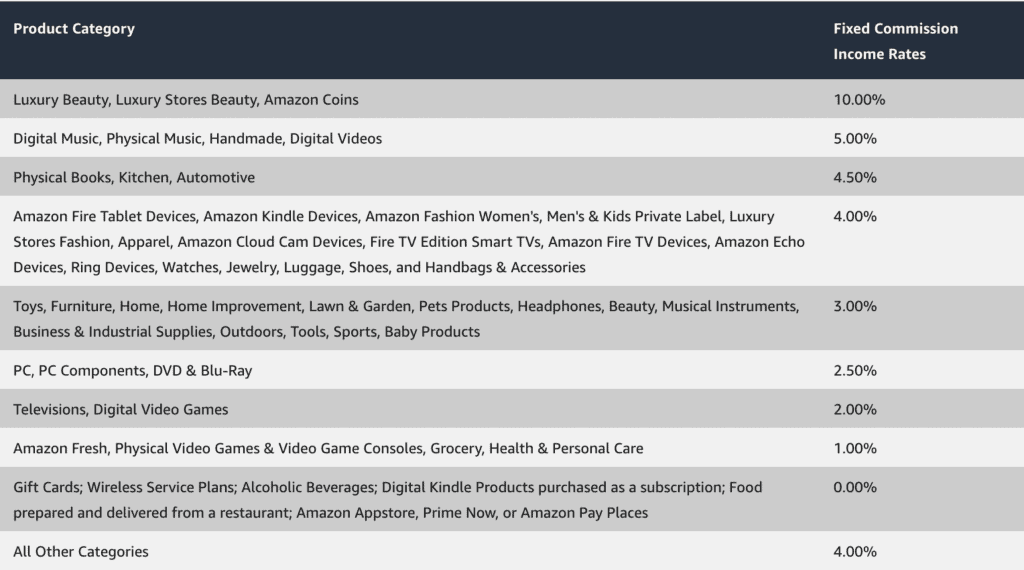
Let’s be real: These commission rates are quite low. But there are still two HUGE reasons why Amazon is viable as an affiliate marketplace:
- Amazon generally offers high conversion rates. Amazon is a known quantity with brand loyalty, so buyers who get referred to Amazon are more likely to make a purchase.
- Amazon has a universal cookie. You get credit for any purchases a referral makes on Amazon within 24 hours, including multiple items and even products you didn’t specifically recommend.
Purely in terms of commission structure, it’s no contest: ClickBank vendors offer high enough commissions that you can turn a profit while promoting them with PPC campaigns, while Amazon has low commissions that generally require you to build an affiliate website to make the numbers work.
WINNER: ClickBank
Conversions
I touched on this already, but as a general rule, you can expect higher conversions on Amazon. This is because of a simple truth: most people know Amazon and already have an account there. At the same time, a lot of people won’t recognize the vendor whose pitch page you just sent them to.
Of course, there’s a ton of conversion rate variability depending on your niche, the quality of the offer, and the strength of your relationship with your audience. If you don’t have a lot of brand recognition for yourself, Amazon may be the better way to go for higher conversions – but if you can carve a name for yourself in your space, ClickBank vendors can give you high conversions and a much bigger slice of the total pie.
Still, Amazon is a clear powerhouse in e-commerce, so we’ll give Amazon this one!
WINNER: Amazon
Payment Schedule and Terms
To be eligible for payment on ClickBank, you need to have 5 total sales across 3 different payment methods. The minimum payout is just $10. In terms of a payment schedule, ClickBank offers biweekly or weekly payments on Wednesdays, which means you don’t have to wait long to pocket the money you’ve earned.
However, ClickBank does currently withhold an allowance to cover any chargebacks or refunds, in an amount that’s based on historical data. The good news is, we also have some alternative payment terms in the works that would eliminate the need for an allowance for affiliates – stay tuned for that!
As for Amazon, it pays out on a much longer schedule of 60 days after a product ships, likely as a way to bypass the period where chargebacks or refunds are still happening. Just like with ClickBank, Amazon’s minimum payout is $10 for direct deposit (but it’s $100 by check).
Generally, we find that affiliates prefer having their money sooner. Sorry, Amazon – ClickBank wins this round!
WINNER: ClickBank
Cookie Quality
Amazon has a notoriously short cookie of just 24 hours for affiliates who refer traffic. This is improved a LOT if the shopper adds a product to their cart in that 24-hour window – this will extend Amazon’s cookie for the item in the cart to 90 days. Amazon also offers a universal cookie, so if you refer traffic to Amazon to buy an iPhone, and the customer buys an Apple Watch instead, you still get credit for that purchase.
At ClickBank, HopLinks for marketplace products include a 60-day cookie. This means if you refer traffic to a vendor’s pitch page today, and they go back and buy the product within 60 days, you’ll still get credit for that purchase. In addition, vendors have the option to allow lifetime commissions to affiliates, which would give you credit for any referred customers forever!
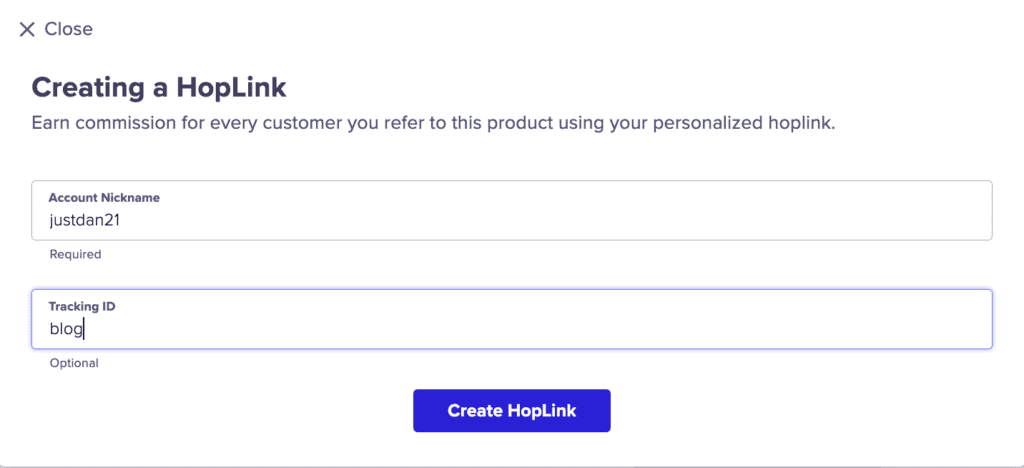
There’s a lot more to take into account than just the length of a cookie, but overall, we think ClickBank’s options for cookies come out ahead.
WINNER: ClickBank
Other Factors
We’ve covered a handful of the many factors you’ll probably want to consider. There may be others that matter more to you.
For example, how much money and time are you comfortable investing in your business? If you want to keep your costs down, Amazon may be the better way to go, because it costs less to invest in a content website and write some SEO content targeting commercial keywords. By comparison, ClickBank may have a higher upfront investment through paid ads to cold traffic, but with a higher upside potential.
The terms on Amazon also put a lot of constraints on HOW you can promote Amazon products, including:
- No paid ads with your affiliate link
- No affiliate links in emails
- Any products images must be through Amazon’s API
ClickBank is a lot more flexible with how you promote products – including email lists and paid search – although the specific terms can vary from vendor to vendor.
Hopefully, this guide has given you a better sense of what both marketplaces are about! Next, we’ve got a summary of the two at a glance.
Pros and Cons of ClickBank
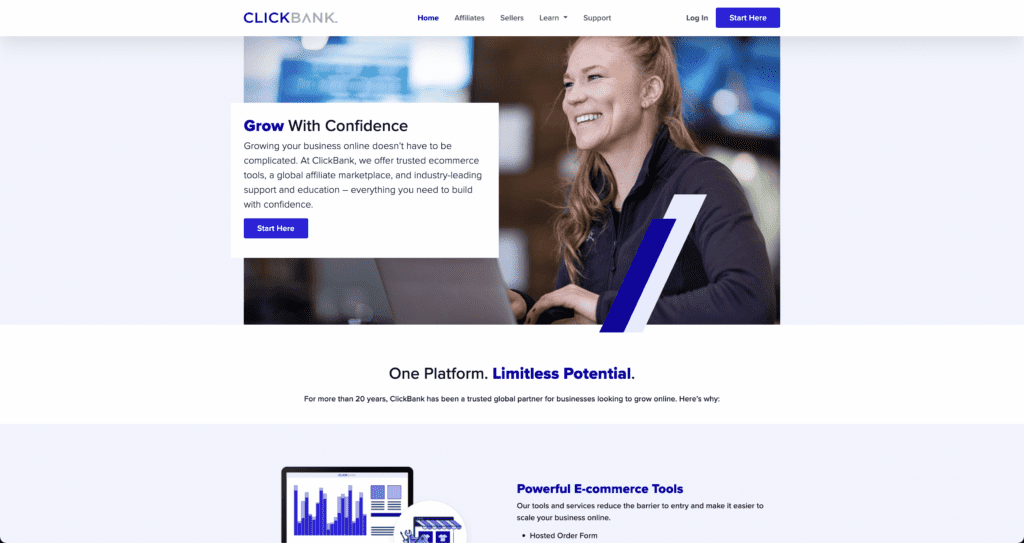
We’re proud of what we offer here at ClickBank. Our marketplace has always existed to support affiliates, so you can be confident that we have you and your business’s interests in mind.
Below is a quick list of the biggest pros and cons about ClickBank for affiliates.
Bottom Line for ClickBank:
Use ClickBank when you know your audience and have an offer in mind that’s relevant to them. With high commissions and great support for our affiliates, ClickBank allows you to promote targeted, quality products in your niche for huge profit potential!
Pros and Cons of Amazon Associates
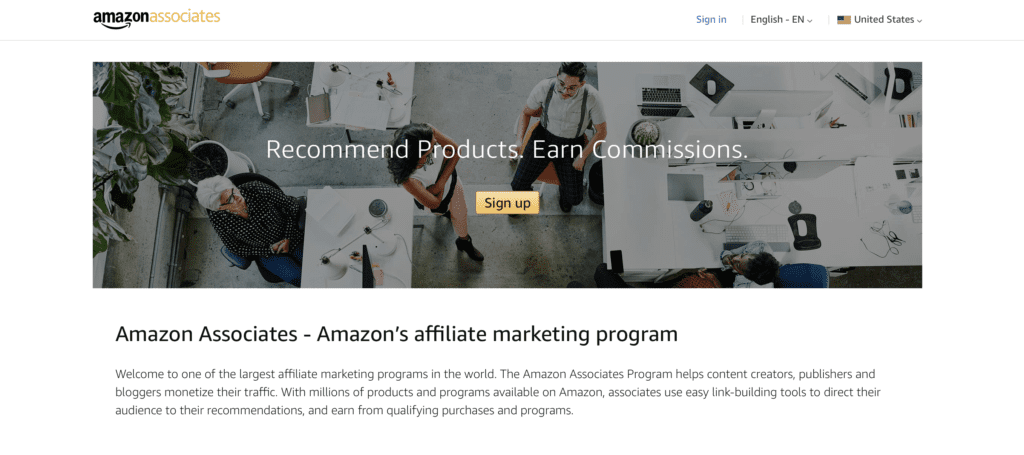
Amazon Associates is a great program tied to the biggest e-commerce company on the planet. It’s hard to argue with that as a source of quality affiliate products.
Below is a list of the biggest pros and cons of Amazon Associates for affiliate marketers.
Bottom Line for Amazon:
Use Amazon as a low-risk way to monetize your site when you aren’t ready to commit to a specific offer. With low commissions but high conversions, the Amazon Associates program is a good option for those who want to get an income going, but haven’t fully gotten to know their audience yet.
However, monetizing your site with Amazon alone carries some risks, as the company can (and does) change the affiliate commissions on its products without warning.
Final Verdict: ClickBank or Amazon Associates?
So, who should you choose as an affiliate marketplace: ClickBank or Amazon?
Well, factors like ease of use and affiliate support are important, but it likely comes down to a simple calculation: where can you make more money?
And the true answer to that question will depend on your experience with affiliate campaigns, your particular niche, and how you plan to get the word out about the products you’re promoting.
Okay, drum roll please!
Here’s the moment of truth. Which popular affiliate network should you choose to make the most money online?
And our verdict is… Both!
Yep, that’s right. There’s probably a place for ClickBank AND Amazon in boosting your business income.
Amazon is helpful for beginners who aren’t as experienced at finding quality offers yet, or those who want to have a wide variety of products to promote.
Becoming a ClickBank affiliate is smart for beginners too. It doesn’t cost any money to join ClickBank and only takes a few minutes to sign up and grab a HopLink you can use to start pointing traffic to a pitch page – however, our marketplace REALLY shines for affiliates with a clear sense of their niche and a specific product or products that their audience would respond to!
It’s also important to emphasize that Amazon is just one entity, even if it has a huge marketplace of products – so if you depend on Amazon for all of your affiliate revenue, you’re not very diversified.
Interested in ClickBank?
When you join ClickBank, you have many vendors all competing for your attention, which is a dynamic that allows affiliates to be true VIPs.
Plus, when you consider the huge difference in commission rates (single digits on Amazon versus up to 75% on ClickBank), it’s clear that ClickBank should be at least one source of top products to promote in your affiliate marketing business.
Whichever route you go, best of luck on your affiliate marketing journey… Bahamas, here we come!
To learn more about success on ClickBank, be sure to check out our in-depth Spark certification course!






